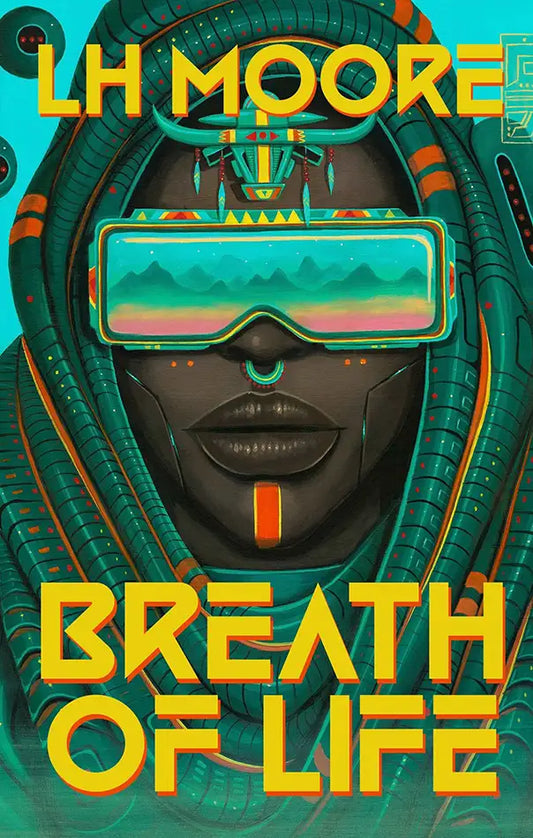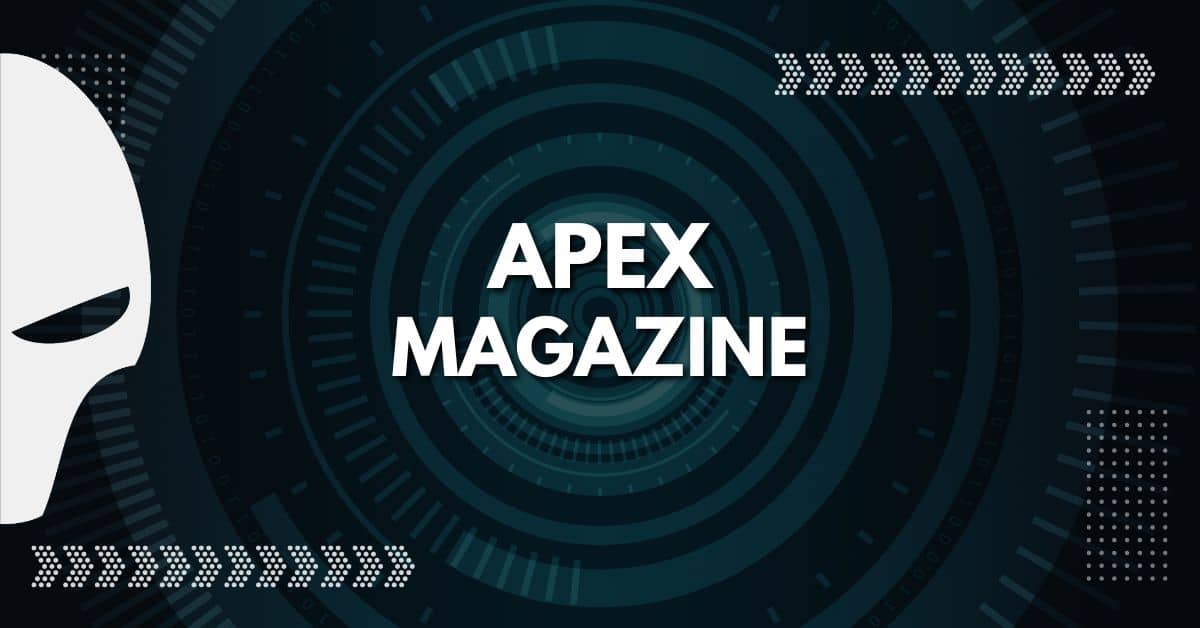
ABOUT "DURING THE PAUSE"
APEX MAGAZINE: "During the Pause" is an intense story both in its moral questions and in its personal immediacy. As a reader, I suspect I'm not the only one who had to hold my breath for five seconds at the end, or the only one who had to think about what I would do. I came to an answer, but it wasn't the one I expected. As the author of the tale, I have to ask: what would you do? Would you comply? Or would you take the easy (though perhaps understandable) way out?
ADAM TROY CASTRO: I can’t pretend to a self-sacrificing nobility I don’t have. I can imagine circumstances where I would do the brave or heroic thing, but the story posits a dilemma far beyond my capacity to put self-interest aside. No question, I would take the easy way out. So would humanity, I think.
AM: What motivates writing a story like this? What sparked the initial concept?
ATC: You know, certain stories come with brilliant little back stories, fascinating little anecdotes, intense little explications of creation, to the point where the behind-the-scenes tale is as, or more interesting than the fiction; i.e. Harlan Ellison’s essay on the creation of his story Tired Old Man, which my local reader’s group found more compelling than the story itself. This is not one of those stories. I vaguely recall writing it, but can no longer summon the genesis, at all. Sorry.
AM: You write a variety of styles, characters, and perspectives. Is there any specific point-of-view that you find you most naturally lean toward in rough drafts, or does experimenting with POV drive how you approach the initial composition of a story?
ATC: Although the story dictates the voice, I sometimes find myself unduly steered toward first-person, present-tense, though that often goes away after I lie down for a while.
GENERAL QUESTIONS:
AM: You've written a number of zombie stories, some short fiction and also the bookZ is for Zombie (illustrated by artist Johnny Atomic). But you and Johnny Atomic have also created V is for Vampire. What is your favorite horror monster? Zombies? Vampires? Or is there another lurking creature that particularly interests you that you haven't yet had a chance to work with?
I've done a few zombie stories and a few vampire stories, but the lurking creature that makes the scariest monster is the human. Human evil has no bottom, and provides the best contrast for other human emotions (including those of the protagonist who must oppose the monster).
AM: You've mentioned in other interviews that you enjoy writing in many different genres (and non-genre fiction/non-fiction), though you've mentioned in the past that you read more crime fiction than other fiction. Is there any particular genre you are more partial to than others, or not so much?
ATC: As a reader, or as a writer? As a reader, I like anything that emotionally affects me, and am pulled toward the dark, one reason I love thrillers in general and horror in particular. As a writer: one reason I like mystery, if not as a genre, then as a format for science fiction stories, is that it gives the protagonists an excuse to walk around asking questions, and figuring out the world on their own, which is a very organic way of explaining it to the reader at the same time.
AM: What is your typical writing routine like? Do you write every day? Or more sporadically?
ATC: I write pretty much every weekday, from 10 AM to 5 PM, in theory, but life intrudes, and I tend to suffer a month or so of relative paralysis after big projects as the software resets.
AM: Do you have a specific method for composing a work of short fiction, or does every story tend to require its own method? If the latter, is there any story you've published that you felt was the most difficult to compose or edit?
ATC: Every story has its own method, and there’s been no hardest story, since some emerge literally years after conception, when I figure out the way to produce them.
AM: What was the most important (to you) piece of writing advice you've encountered?
ATC: Worst piece of writing advice, ever: “You will never sell a word.” (This from a very acclaimed author of literary fiction, back in college, and I’m proud to say that as he stood there smirking at me, the one thought that popped into my head as my ears pounded and my cheeks burned was the sentence: “Adam, treasure this moment.”) Best: the well-known editors who took me to breakfast to say, “Adam, that first story you sold us? Were you a little unnerved that it was coming out of you? You were? Okay…have you felt more comfortable of late? You have? Well, that’s what you’re doing wrong.”
AM: You are, by all standards, a very accomplished and successful writer. But all authors begin as amateurs and have to cope with rejection on a fairly regular basis (in most cases). How have you measured your own success as you've developed your career? Was there any particular moment that stuck out and made you think, "This is it!" What about failures? How do you (or do you have to) cope with rejections?
ATC: The terrible and wonderful secret is that the finish line recedes further with every rubicon crossed. When I first sold a short story, I thought, “Cool!”, but discovered that I wasn’t going to feel like a real writer until I sold one to one of the major magazines. Did that, my first cover story to F&SF, thought “Cool!”, and found that I wasn’t going to feel like a real writer until I sold a novel. Sold media tie-in novels, thought “Cool!” and said, no, I’m not going to feel like a real writer until I had a novel of my own creation based on my own characters. That happened, and…well, you get the picture. I’m as far from that validation line as I was when I started. Despite international publications, award nominations, compliments from people I grew up reading, and so on, I still think of myself as an amateur who has yet to prove himself. With twenty-seven books published or contracted, I find the finish line is still moving, and that the worst possible thing for me, ever, will be catching up with it.
AM: You've been reviewing movies for years. What--if you can pick!--would you consider your favorite SF movie? Least favorite? One you feel no SF fan should miss?
ATC: A Clockwork Orange is, for me, that rarity: an absolutely perfect movie, made with genius in every frame, and a central, brilliant, moral question about the use of technology to serve a social problem. Least favorite: oh, if we get started on that we’ll be here all day. I am no longer a fan of many of the movies sf fans tend to consider classics; alas, few of them stand up to further viewings. (2001, for instance, sadly doesn’t stand up at all, for long stretches, including those driven only by special effects that now look, if not bad, then certainly quaint. Kubrick made a number of movies that didn’t age; that isn’t one of them.) There is no one film that suits the final question, but I urge the Japanese Battle Royale, for its nuanced multi-layered view of human nature, on anyone who can take it.
AM: Are you an e-reader or a tree-reader, or both? Why?
ATC: I read paper books, for the most part, but have joined the e-revolution and get to those when I can.
AM: Just for fun: if you could be friends with (or meet) one fictional character, who would it be and what kind of venue would you meet at?
ATC: Dr. John H. Watson M.D. There's some hard truths I'd like to tell him, over tea.
AM: What can we look forward to seeing from you in the coming months (if you can say)?
Oh, certainly. By the time this interview sees print, the world will have seen the debut of my middle-grade character Gustav Gloom, a young boy raised by a society of shadows, whose strange life and bizarre adventures is the focus of an entire series of splendiferous novels published by Grosset and Dunlap. The first is Gustav Gloom and the People Taker, the second following a few months later is Gustav Gloom and the Nightmare Vault, and it will continue from there. At shorter lengths, "My Wife Hates Time Travel" will soon appear at Lightspeed Magazine online, and John Skipp’s epic anthology DEMONS will feature the first mass-market version of my horrific novella, "The Shallow End Of The Pool," which was nominated for a Stoker some time back. You can expect a short story collection coming in about a year or so, from Prime Books. Folks who like my movie commentary can also Google my blog, The Remake Chronicles, (which may change URLs some time soon, hence the Google suggestion), which contrasts the various versions of well-known stories, told multiple times.
AM: Thanks so much for your time and for sharing "During the Pause" with us!











